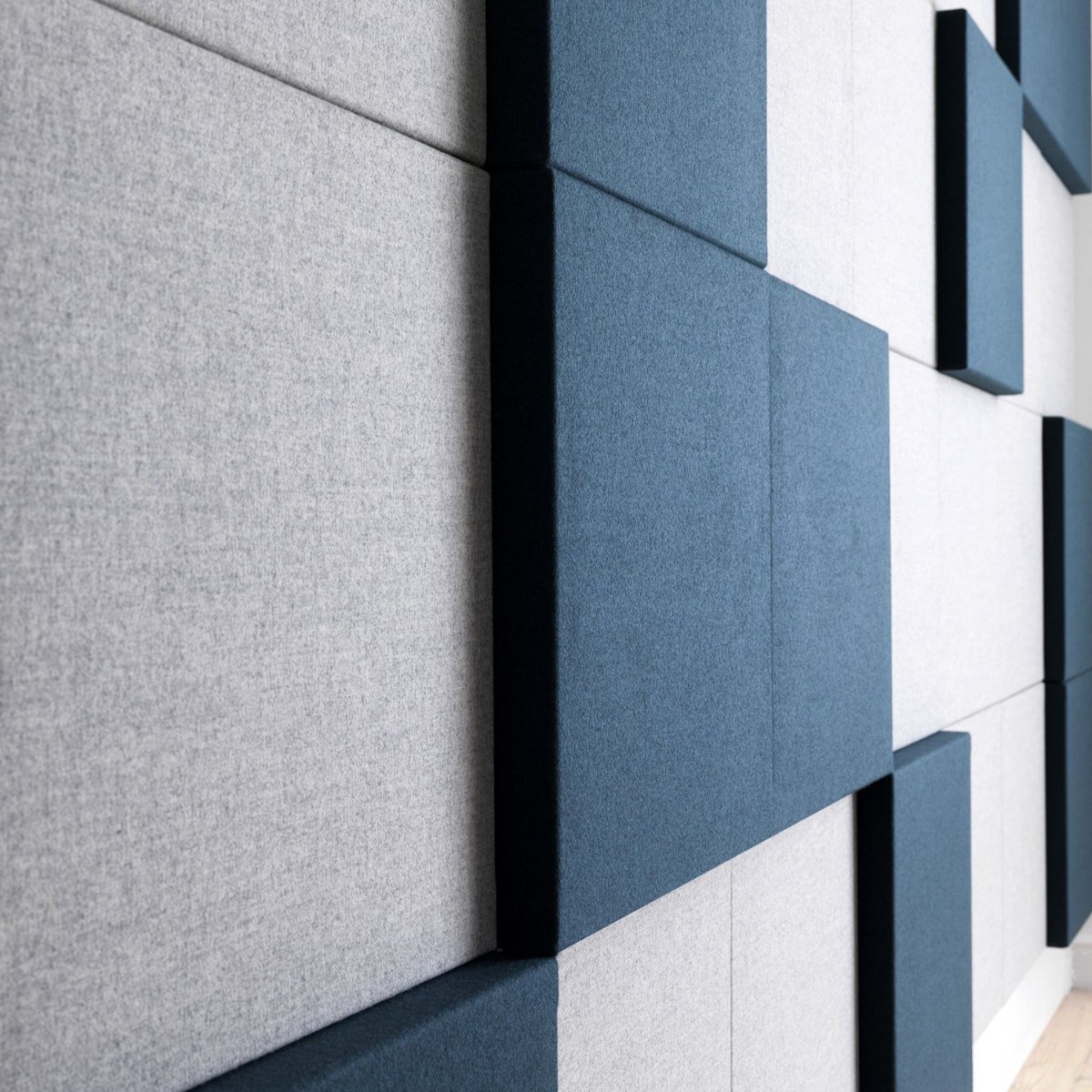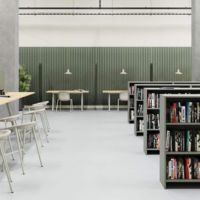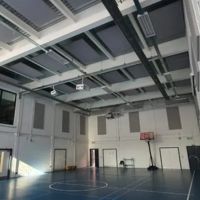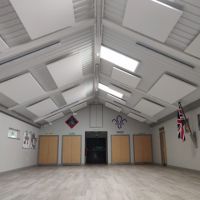
Will Acoustic Panels Keep Sound Out?
Will Acoustic Panels Keep Sound out?
Introduction
If you have noisy neighbours or a busy street outside your window, you may be seeking for a technique to muffle the noise. Acoustic panels may be mentioned as a possible remedy, but do they actually work? Let us investigate more.
Explanation of what acoustic panels are
Acoustic panels are panels designed to absorb sound waves and reduce echo and reverberation in a space. They are often used in offices, homes, and studios to create a more comfortable and productive environment.
Purpose of the article
To explore the capabilities of acoustic panels and answer frequently asked questions about their effectiveness for soundproofing and noise reduction. We will cover how effective acoustic panels are at reducing noise, if they are good for soundproofing, if they reduce noise through walls, if they keep sound in, if they keep sound out, and the conclusion will summarize the key points and give additional advice and recommendations.

Spaces like this will be very loud
How effective are acoustic panels at reducing noise
Acoustic panels can be highly effective at reducing noise levels in a space. They are designed to absorb sound waves and prevent them from reflecting off of surfaces, which can reduce echo and reverberation. This can make a space feel more comfortable and productive, and can also improve speech intelligibility. However, it's important to note that acoustic panels are not a one-size-fits-all solution
How do acoustic panels work?
Acoustic panels work by absorbing sound waves and preventing them from reflecting off of surfaces, which can significantly reduce echo and reverberation. This can make a space feel more comfortable and productive, and can also improve speech intelligibility. The end goal is to reduce the reverberation time within the space.
Factors that can affect the effectiveness of acoustic panels
The effectiveness of the acoustic panels can depend on various factors such as the size of the space and the materials used to construct the panels. For example, a large open space will require more acoustic panels than a small room, and some materials are more effective at absorbing sound than others. A single wall full of acoustic panels can reduce sound reverberation in even the busiest room by more than 50%, making it an incredibly effective method of reducing unwanted noise.
Real life example and statistics
We complete acoustic panel fitouts for a wide variety of spaces including village halls. At the Furneux Pelham village hall we installed a high-density of Ecophon Solo Rectangle acoustic panels to the hall’s ceiling. Offering Class A acoustic absorption, the panels effectively reduced the interior noise levels and restored comfort to the hall’s users. The reduction in reverberation time was from around 5 seconds, all the way down to 1.5 seconds.

Finished acoustic treatment of a village hall
Are acoustic panels good for soundproofing?
Acoustic panels can be a good solution for reducing noise levels in a space, but they are not the same as soundproofing. Soundproofing typically involves isolating a space from outside noise
The difference between soundproofing and noise reduction
Soundproofing typically involves isolating a space from outside noise by using materials such as heavy duty materials, timber, walls, and floors, while noise reduction is about absorbing sound waves and preventing them from reflecting off of surfaces. Soundproofing essentially requires adding mass to the adjoining surfaces, and sealing air gaps which allow sound to travel through.
Acoustic panels will not solve noisy neighbours!
How acoustic panels can be used as part of a soundproofing solution
Acoustic panels can be used as part of a comprehensive soundproofing solution, but they are not designed to completely block out outside noise. They can be used in conjunction with other soundproofing materials to improve the overall effectiveness of the solution.
Real life examples and statistics
Too often we receive enquiries from people who have had acoustic panels recommended to them to solve issues with ‘noisy neighbours’. This is more of a soundproofing issue, and cannot be solved solely through the use of acoustic panels.

Acoustic panels will not solve noisy neighbours!
Do acoustic panels reduce noise through walls?
How acoustic panels can reduce noise transmission through walls
Acoustic panels will not help to reduce noise transmission through walls as they work by absorbing sound waves and preventing them from reflecting off of surfaces. This can make a space feel more comfortable and productive, and can also improve speech intelligibility. But sound will still leak through to the wall surfaces behind them.
Acoustic panels will not diminish noise transmission via walls. Acoustic panels are intended to absorb sound waves and limit noise transmission inside an open environment. They can help to dampen sound within a room, but they cannot prevent sound from travelling between rooms through walls..
Real life examples and statistics
A healthcare facility that installed acoustic panels in patient rooms on the walls in between rooms or a noisy corridor saw no noticeable reduction in noise levels, which did not lead to improved patient comfort and sleep quality.
Will acoustic panels keep sound in?
Explanation of how acoustic panels can keep sound in a space
Generally, acoustic panels will not be completely effective at keeping sound in a space. Acoustic panels can help to keep sound in a space by absorbing sound waves and preventing them from reflecting off of surfaces. This can reduce echo and reverberation, which can make a space feel more comfortable and productive.

More thought and design is required to prevent noise transfer
There may be a small knock on effect; as the overall noise levels within the room are reduced, there may be a reduced level of sound transferring through to adjoining areas. They are not a solution for completely soundproofing the room, and you might need to use other soundproofing materials and methods.
They can also be effective at keeping sound in certain parts of open plan offices, as the sound waves are absorbed more quickly. This prevents them from travelling through to the other areas of the office and causing distractions.
Real life examples and statistics
A shared office space that installed acoustic panels on the walls and ceiling of the open plan office areas and conference rooms. Employees reported a significant reduction in noise transmission between rooms, leading to improved productivity and collaboration among employees. Acoustic panels are crucial to good office design!

Conference room acoustic panels can reduce overall noise levels
Will acoustic panels keep sound out?
Explanation of how acoustic panels can reduce noise levels but not completely block out outside noise
Acoustic panels can help to reduce noise levels by absorbing sound waves and preventing them from reflecting off of surfaces, but they are not designed to completely block out outside noise. They are porous materials which allow sound to travel through them. To keep sound out, solid physical barriers such as brick walls are more effective.
Conclusion
Summary of key points covered in the article
The article has covered how effective acoustic panels are at reducing noise, if they are good for soundproofing, if they reduce noise through walls, if they keep sound in, if they keep sound out, and how the effectiveness of the panels can depend on factors such as the size of the space and the materials used.
Discussion of the limitations of acoustic panels
The limitations of acoustic panels are that they are not a one-size-fits-all solution and they are not designed to completely block out outside noise. They can be used as part of a comprehensive soundproofing solution but they are not effective alone.
Additional advice and recommendations for readers considering using acoustic panels for soundproofing and noise reduction.
It is recommended to consult with acoustic experts and professionals to determine the best solution for specific needs, also you can use online calculators or sound level metre to measure the current sound levels and estimate how many panels you will need, and the type of materials that will be the most effective. Additionally, it's important to note that proper installation is crucial for the effectiveness of the panels.
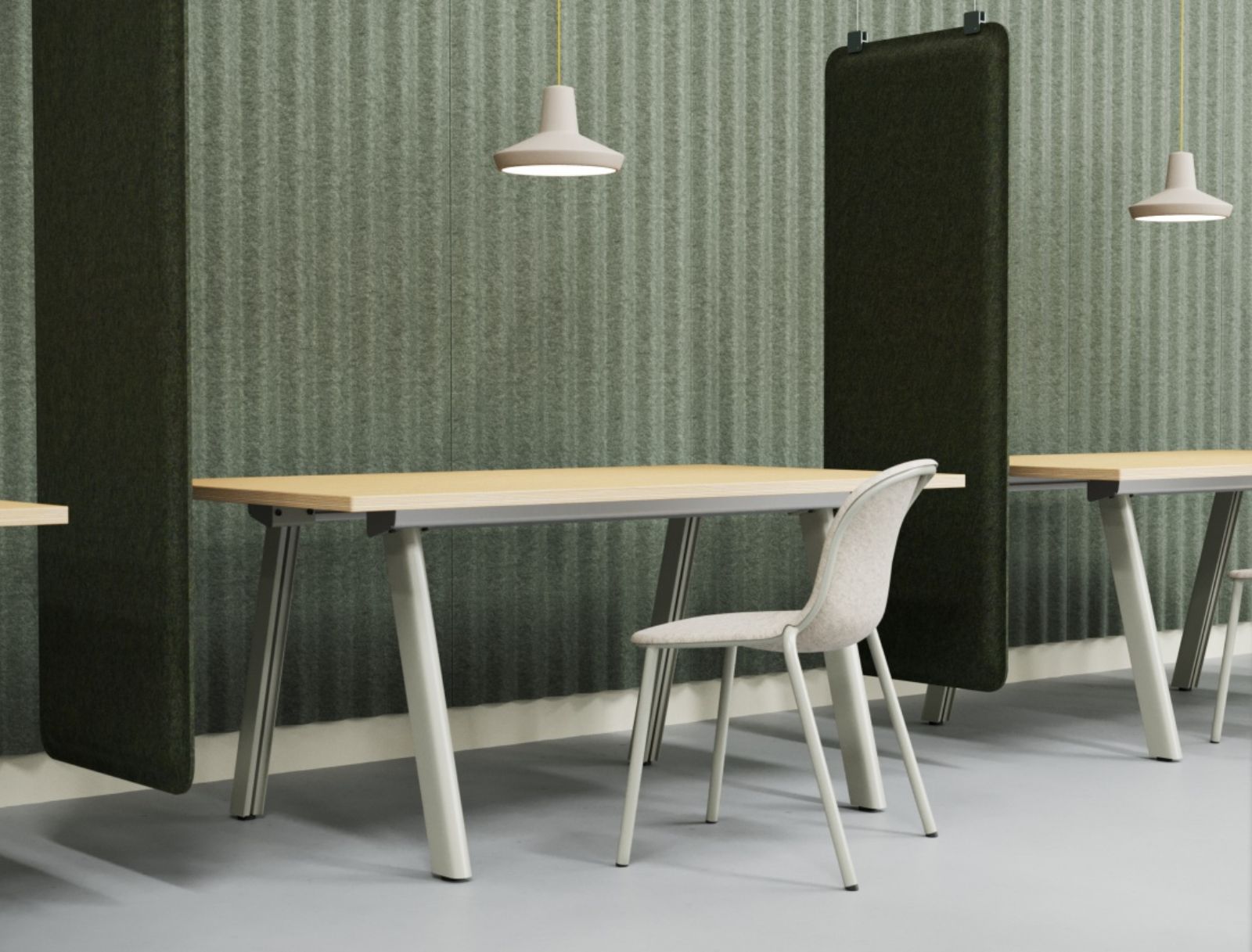 Acoustic Wall Panels
Acoustic Wall Panels 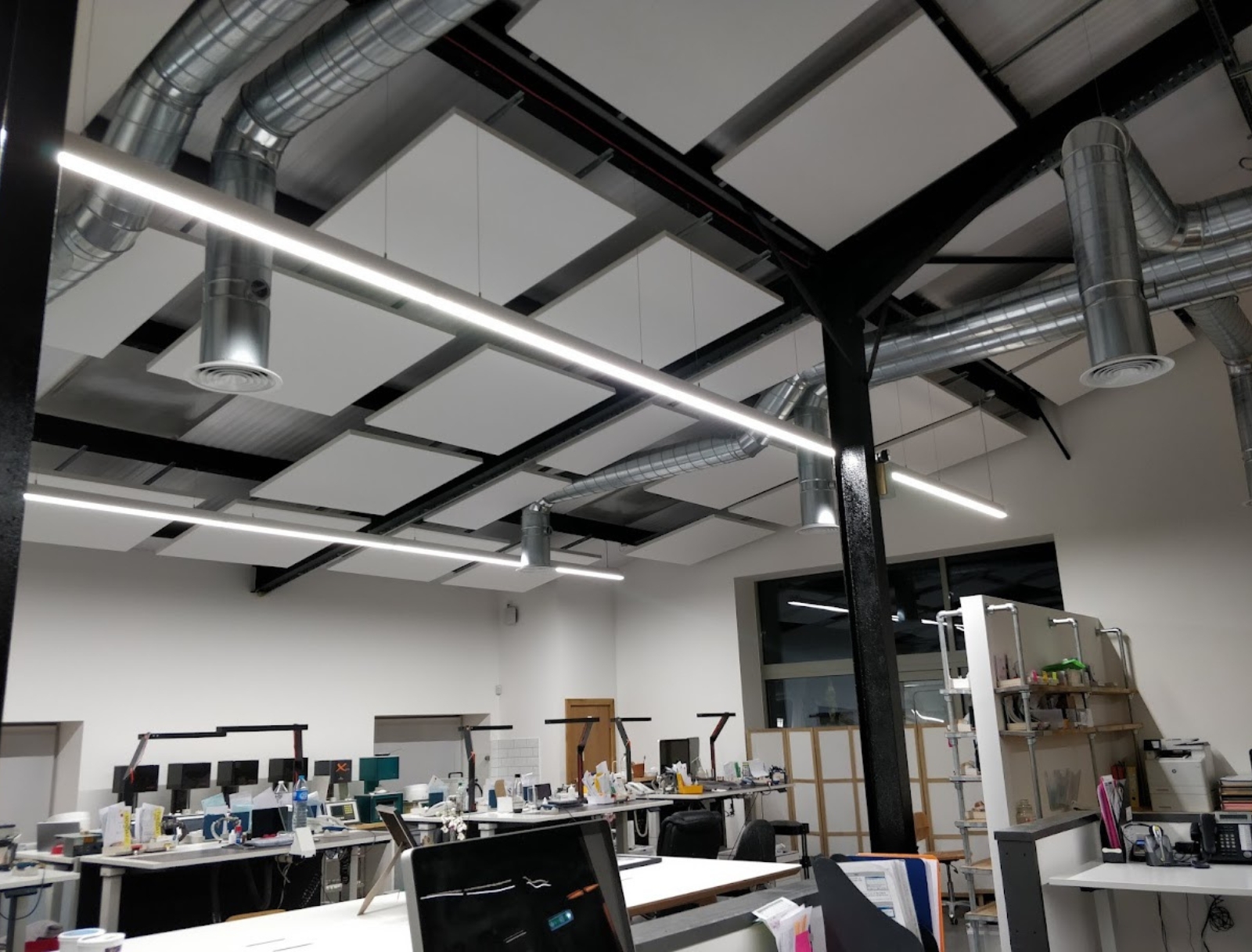 Acoustic Ceiling Panels
Acoustic Ceiling Panels 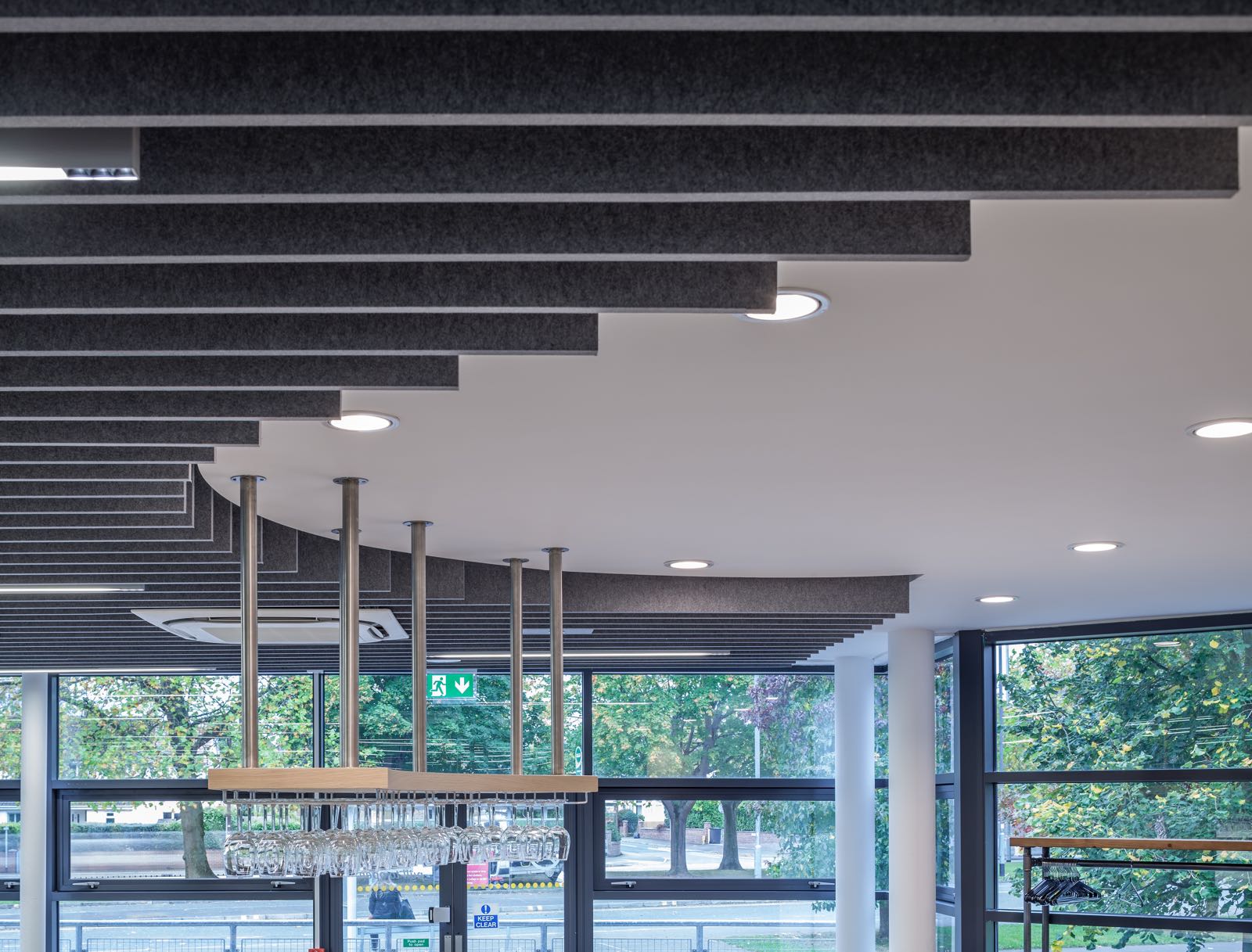 Acoustic Ceiling Baffles
Acoustic Ceiling Baffles  Acoustic Screens
Acoustic Screens 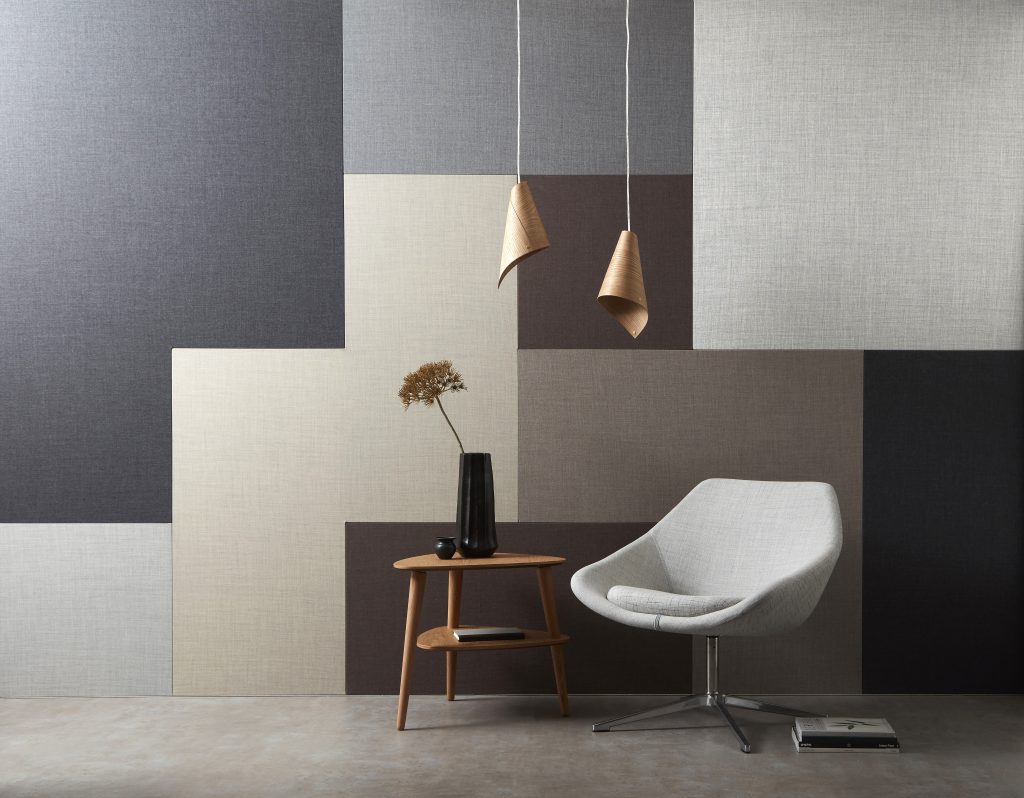 Acoustic Fabric
Acoustic Fabric 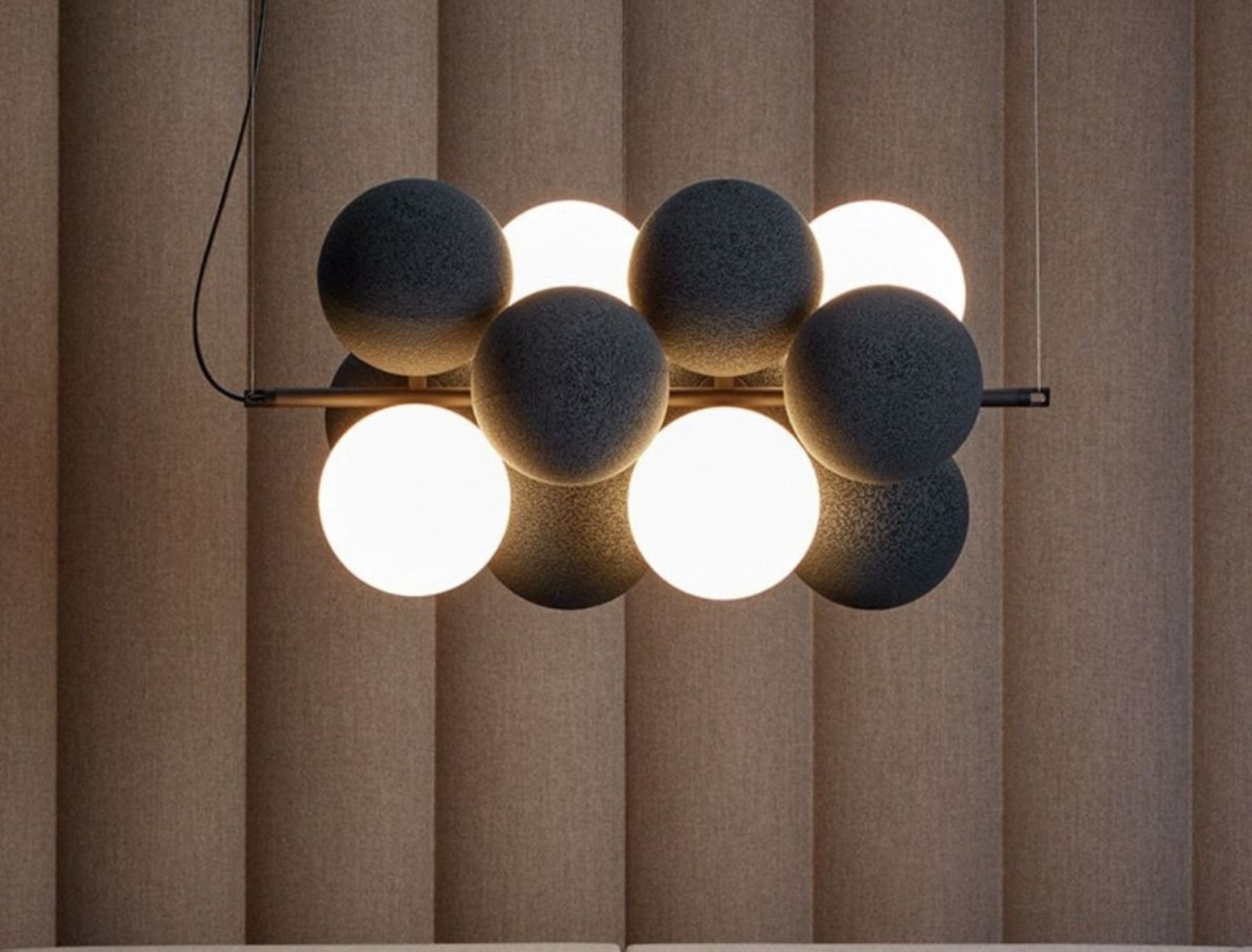 Acoustic Lighting
Acoustic Lighting 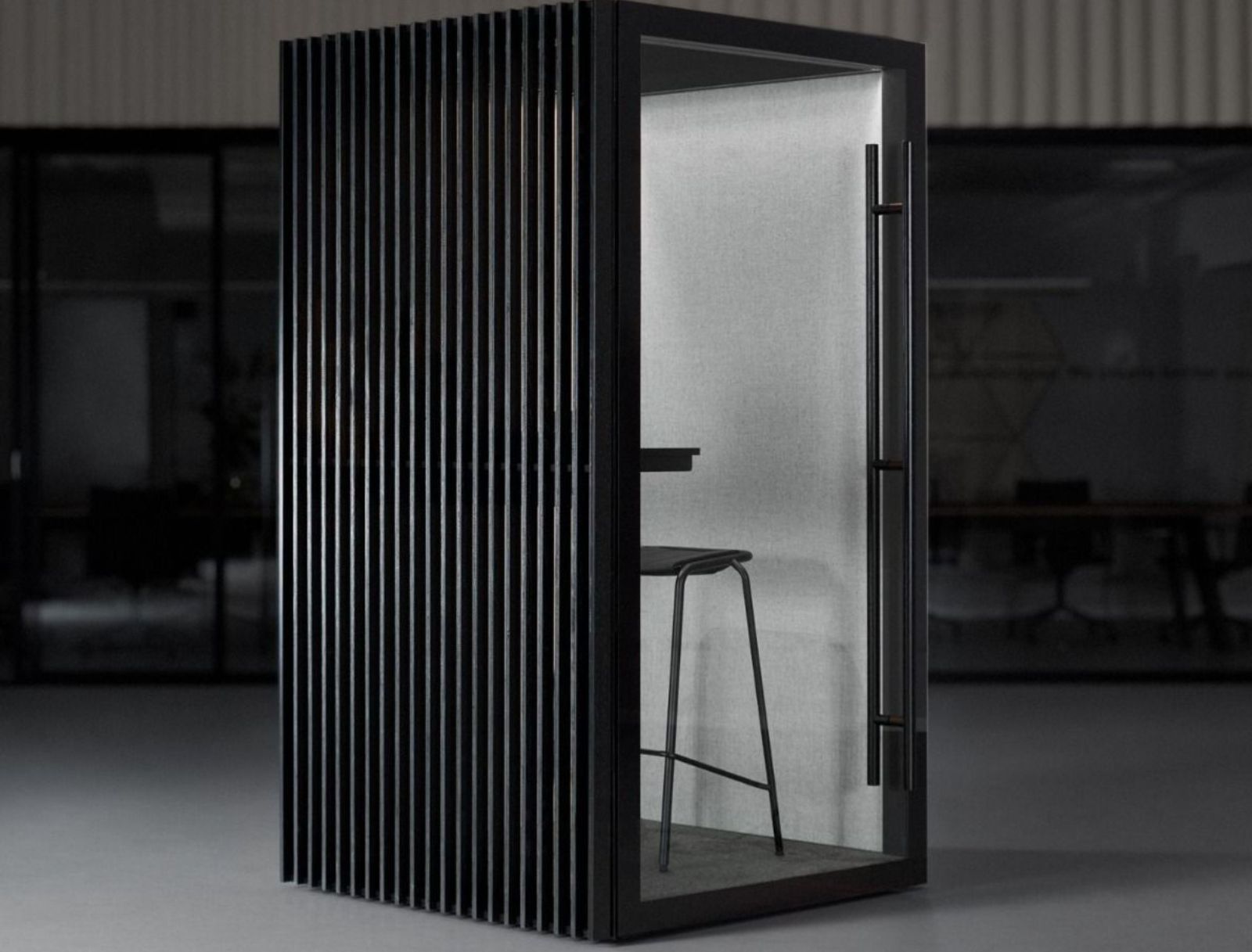 Acoustic Booths and Pods
Acoustic Booths and Pods  Acoustic Panel Accessories
Acoustic Panel Accessories 